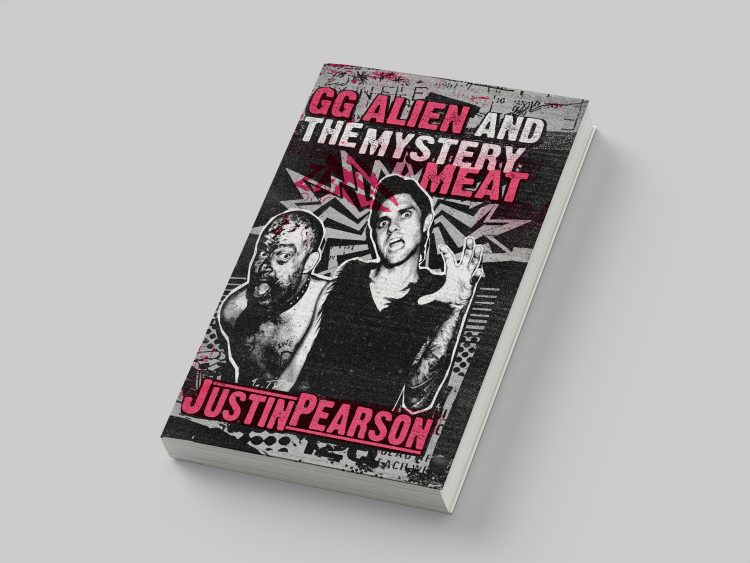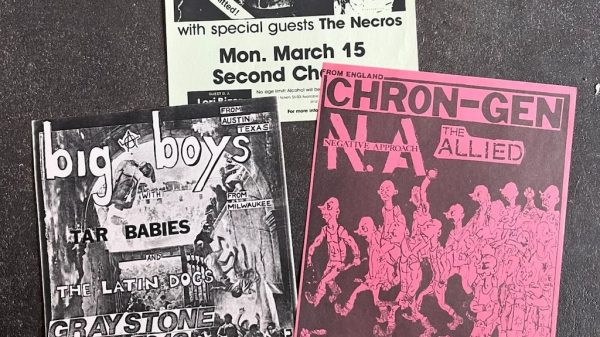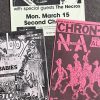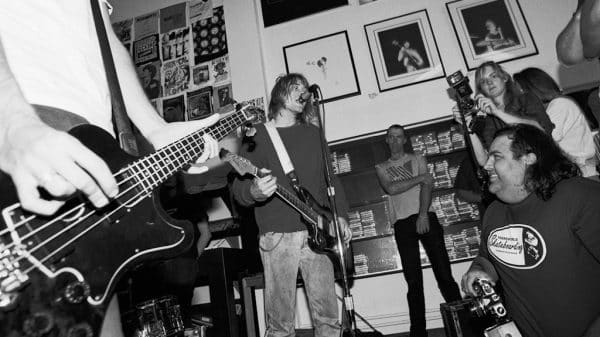Someone said the only thing free about free jazz is that you don’t get paid and unfortunately the same can be said about punk. If punk rock’s hardest-working man can’t make a decent living at this who else stands a chance?
Justin Pearson kills it in Deaf Club, Dead Cross, and Satanic Planet. He runs the excellent label Three.One.G. He co-hosts the Cult and Culture podcast. He promotes other killer bands. He has appeared in film and done voiceover work. The man has a documentary about him. And of course, he writes books, and his latest, GG Alien and the Mystery Meat, begins with the never-ending hustle to scrape by and still live the life he chooses. One crappy minimum wage job after another, typically ending when the next tour begins.

A small bit of low-wage salvation arrives in the form of a job at Rich’s, San Diego’s premiere gay nightclub. Apparently, it is odd for Rich’s to hire a straight person, but with a strong push from his friend Johnny Girl, Pearson was in. Despite always being an ally of the LGBTQ community, the learning curve was intense.
Much of the book covers many of the strange characters Pearson meets at Rich’s seemingly endless Bacchanalia. Rich and poor partied together, closeted military personnel, and Nazi fetishists minus the political convictions, a melting pot of good and bad come together in the late nights of the club.
Music is never far from the story. We hear about the ins and outs of his project All Leather and we are given insight into the formation of Dead Cross. And of course, GG Allin makes a brief appearance. Electronic music is the backdrop for any given night at Rich’s. We get short peaks into DJ culture and Pearson’s own collaboration with Ill Saint M.
At first glance, one might be reminded a bit of George Orwell’s short novel, Down and Out in Paris and London, but set to a completely modern backdrop. But it also reads at times as a fish-out-of-water story. Or maybe “Otter” might be the more appropriate life form. But it’s the blending of all these elements that makes this such a unique read.

All takes place in the backdrop of class and sexuality politics, but this is not an academic study nor a typical, if not well-intentioned memoire. Instead, Pearson gives us the straightforward perspective of a lifelong punk. Politics matter but his prose is driven by his personal experience, a refreshing take, unique in viewpoint and delivery.
There are laugh-out-loud moments and bits of sadness mixed in. Overall, you can feel the frustration of trying to live one’s life outside of the mainstream, but thank god he does. The music and the prose matter more.












